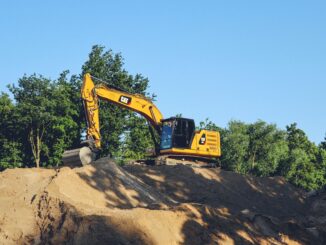Whilst farming and agriculture is recognised as being one of the most dangerous professions to work in, a lot of the focus on preventative strategies is put on the nature of youth workers. Especially what types of work are appropriate for what ages, and what legislation is needed to protect younger children and teenagers from being exposed to undo risks and hazards.
It is important to say that legislation that is introduced is not meant to be a judgement on families or parents of children who work on farms.
A large number of farms are run as family businesses, either solely or on a management basis. The reality is that children and young teenagers become involved in the nature of the business from an early age, because it is a big part of their life.
Most parents will obviously want to protect their children from any type of danger and this becomes even more of a moral imperative when farm work is involved.
Legislation is often needed to set a responsible boundary that parents and caregivers of children can use to guide them in what is a really appropriate type of work for their children to be involved in.
Children, teenagers and young adults who grow up on a farm normally love to be involved in the workings of it, but often do not possess the emotional, mental or physical maturity to do certain types of work.
This does not always stop them trying to do it, and parents need to have a strong set of personal and professional boundaries that allow them to involve children in age appropriate work, but to also make sure they understand why they cannot be involved in certain other areas of the farm’s production.
Whilst it is difficult to generalise, most countries will set an age limit as to what it deems to be adults and what it means to be children, and it is probably a fair assumption to take the age of 16 as being that turning point, although some countries may differ.
Even taking the age of 16 as a dividing line between adult and child, there may be certain circumstances where people who have not quite reached the age of 16 can operate certain types of machinery or drive certain types of vehicles if they have sufficient training and proper supervision to make sure they are capable of doing such, local laws permitting.
The main area where there is seems to be a need to protect children and young teenagers is in the driving of vehicles and the operation of different types of machinery.
In addition a farm may have significant number of chemicals and hazardous materials on site, and there should be a large number of safety precautions in place to protect all workers especially children. These measures normally involve different types of storage and signage, as well as the correct use of PPE for any type of work involvement.
Anyone involved in the use of these chemicals or hazardous materials need to be properly qualified and trained, and in virtually all circumstances anyone aged 16 or under, and possibly older as well, should be excluded from any involvement in this type of activity.
Farms obviously use different types of vehicles and machinery, and there may be circumstances where people who are older teenagers but have not yet reached the legal age may be allowed to operate certain types of vehicles or machinery on the farm with appropriate training and supervision.
Ultimately the decision is down to the parents or caregivers of the children involved, but they should be aware of what the legislation covers and does not cover, and use it as a basis for their own farm management policies concerning young adults and children.
There are other types of work on a farm that children and young teenagers are likely to be allowed to be involved in, and most of the time are keen to do so.
This can normally involve things such as picking vegetables and fruits, being involved in looking after and rearing certain animals, learning how to feed them and generally be involved in their welfare.
This area of being involved with animals can be hugely useful in helping children develop a number of skills as well as developing a strong attachment to animal welfare.
Any type of this work is likely to exclude working with animals who are being bred in conditions that many people find unacceptable, but which are still legal.
Some farm owners allow younger teenagers to operate certain types of machinery, namely small tractors, ride on mowers and some ATV’s.
This is a contentious area for the simple reason that many young teenagers do not have the emotional maturity to operate these types of vehicles safely.
Some do but many do not and farm owners should take extreme care before allowing any teenager to operate any type of vehicle or machinery, as well as complying with whatever legal conditions or regulations are in place in the area in which they live and work.


